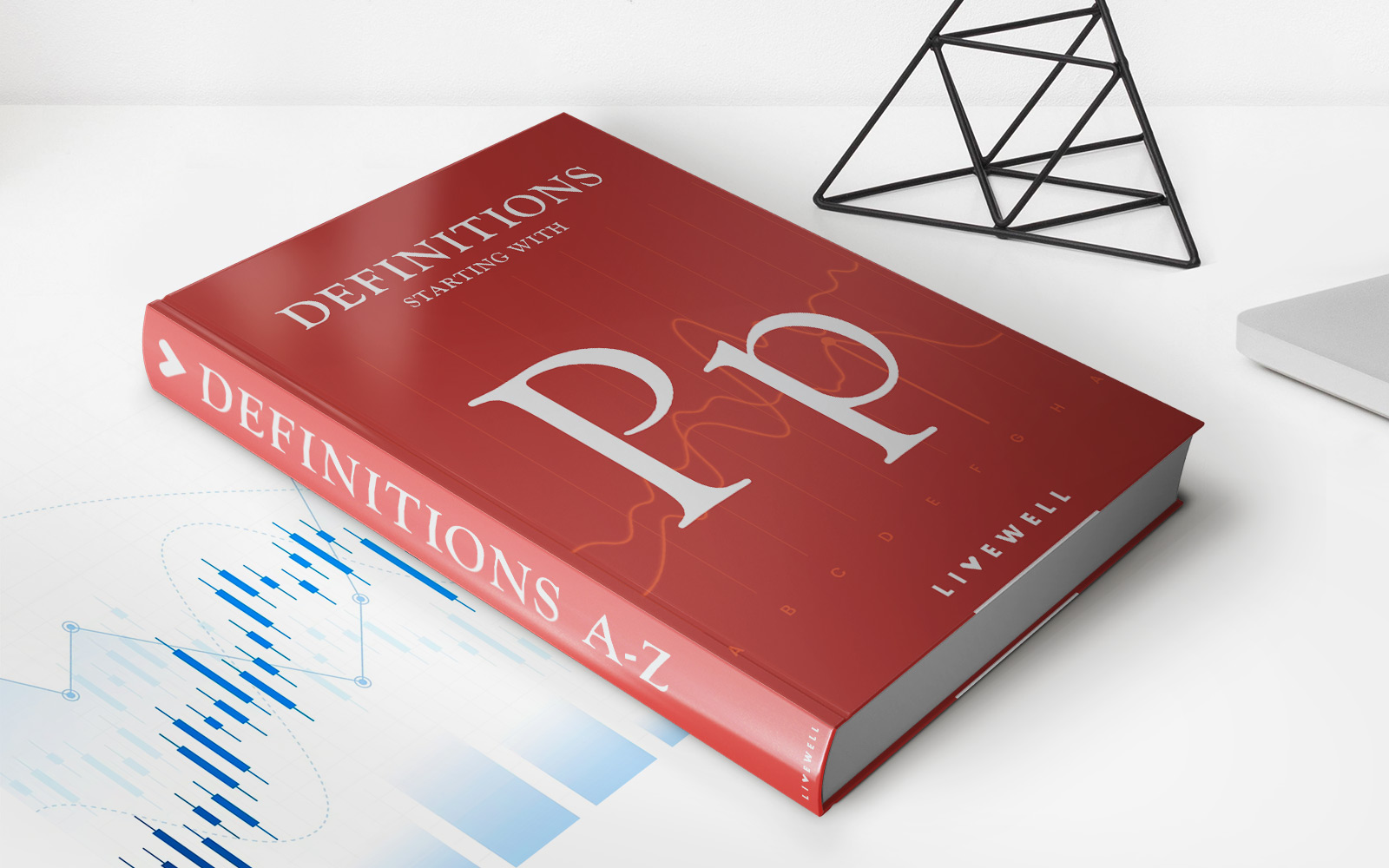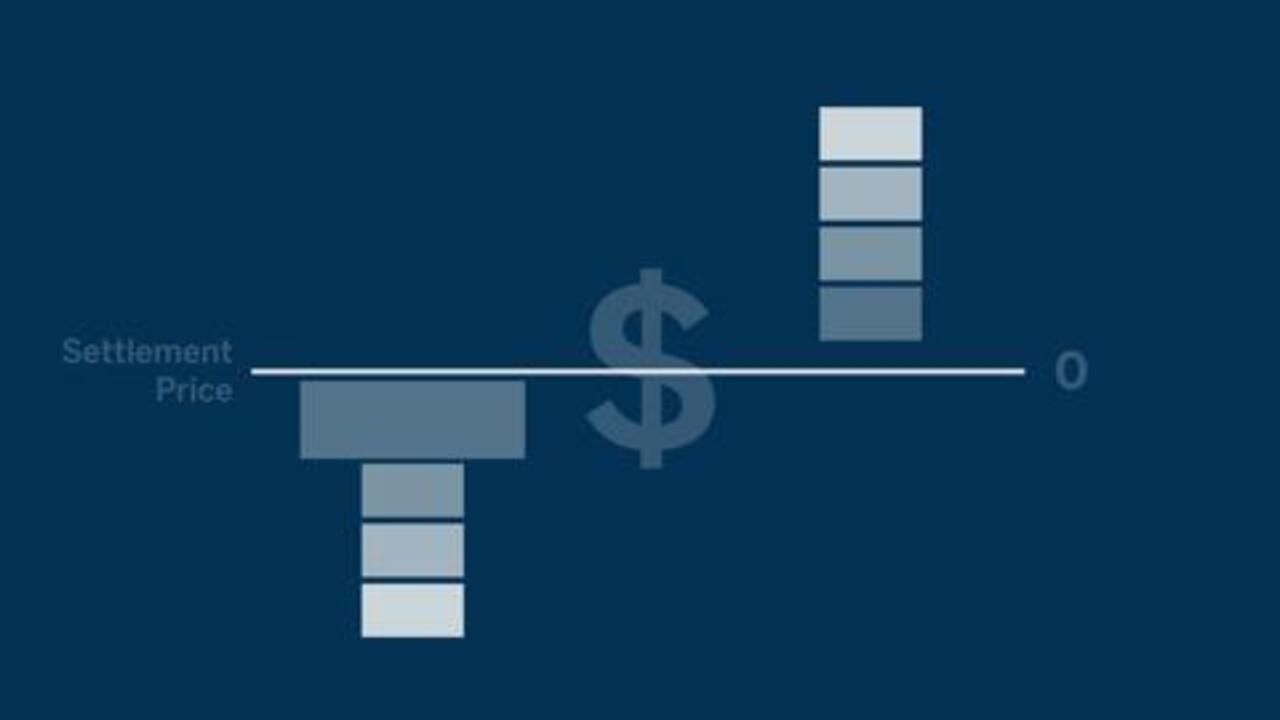

Finance
What Is Pre-Settlement Funding
Published: December 22, 2023
Looking for financial assistance during a pending lawsuit? Learn about pre-settlement funding and how it can help you with your finance needs.
(Many of the links in this article redirect to a specific reviewed product. Your purchase of these products through affiliate links helps to generate commission for LiveWell, at no extra cost. Learn more)
Table of Contents
- Introduction
- Definition of Pre-Settlement Funding
- How Pre-Settlement Funding Works
- Eligibility Criteria for Pre-Settlement Funding
- Advantages of Pre-Settlement Funding
- Disadvantages of Pre-Settlement Funding
- Choosing a Pre-Settlement Funding Provider
- Important Considerations before Seeking Pre-Settlement Funding
- Frequently Asked Questions about Pre-Settlement Funding
- Conclusion
Introduction
When individuals are involved in a personal injury lawsuit or legal dispute, they often face financial difficulties as they wait for their case to settle. Medical bills, living expenses, and other financial obligations can quickly pile up, putting immense strain on the injured party or their family. In such situations, pre-settlement funding can provide a much-needed lifeline.
Pre-settlement funding, also known as lawsuit funding or lawsuit loans, is a financial solution that allows plaintiffs to access a portion of their expected settlement before their case is resolved. This type of funding can help alleviate financial stress and provide the necessary resources to cover immediate expenses while awaiting the final settlement or verdict.
The concept of pre-settlement funding is relatively new but has gained popularity in recent years. It is particularly prevalent in personal injury cases, where plaintiffs often struggle to pay for medical treatments, replace lost income, or meet other financial obligations. By securing pre-settlement funding, plaintiffs can have peace of mind and focus on their recovery instead of worrying about financial burdens.
In this article, we will delve deeper into pre-settlement funding, exploring its definition, how it works, the eligibility criteria, advantages, disadvantages, and important considerations to keep in mind while seeking pre-settlement funding. Whether you are a plaintiff considering this option or someone curious about the subject, this guide will provide you with a comprehensive understanding of pre-settlement funding and equip you with the necessary knowledge to make informed decisions.
Definition of Pre-Settlement Funding
Pre-settlement funding refers to a financial arrangement in which a third-party funding company provides cash advances to plaintiffs involved in ongoing legal cases. This funding is based on the anticipated future settlement or verdict that the plaintiff expects to receive in their case.
Unlike traditional loans, pre-settlement funding is considered non-recourse funding. This means that if the plaintiff does not win or settle their case, they are not obligated to repay the funding amount. Instead, the repayment is contingent upon the successful outcome of the lawsuit.
Pre-settlement funding operates on the principle of “borrowing” against the potential settlement or award that the plaintiff may receive in the future. The funding company evaluates the strength of the case and calculates the risk involved in providing the funds. If they determine that the case has a high likelihood of success, they may offer a cash advance to the plaintiff.
It is important to note that pre-settlement funding is not available for all types of legal cases. It is commonly used in personal injury cases, product liability claims, medical malpractice lawsuits, and other types of civil litigation. The funding company assesses the viability and potential value of the claim before approving the funding.
The amount of pre-settlement funding that a plaintiff can receive varies depending on the specifics of their case. Generally, funding companies offer a percentage of the expected settlement or verdict amount, which can range from 10% to 20%. The funds are typically provided in a lump sum or in installments, depending on the agreement between the plaintiff and the funding company.
It is essential to understand that pre-settlement funding is not technically a loan but rather a non-recourse cash advance. This distinction is significant because if the plaintiff does not win their case, they are not required to repay the funding amount. The funding company assumes the risk of losing their investment if the case does not result in a favorable outcome.
How Pre-Settlement Funding Works
The process of obtaining pre-settlement funding typically involves the following steps:
- Initial Evaluation: Once a plaintiff applies for pre-settlement funding, the funding company will evaluate the merits and potential value of their case. This evaluation includes reviewing the relevant documents, such as medical records, accident reports, and legal filings.
- Funding Approval: If the funding company determines that the case has strong chances of success and a potential settlement or verdict amount, they may approve the funding application. The plaintiff and the funding company then enter into an agreement that outlines the terms and conditions of the funding.
- Amount and Disbursement: Once the funding is approved, the plaintiff and the funding company agree on the amount of the cash advance. The advance is typically a percentage of the expected settlement or verdict. The funds can be disbursed as a lump sum or in installments, depending on the agreement.
- Repayment: In most cases, the repayment of pre-settlement funding is contingent upon the successful outcome of the lawsuit. If the plaintiff wins or settles their case, they are required to repay the funding amount, along with any agreed-upon fees and interest. The repayment is usually made directly from the settlement proceeds.
It is important to understand that pre-settlement funding is not without its risks and considerations. Funding companies assume the risk of losing their investment if the plaintiff does not win or settle their case. Therefore, the funding amount and the associated fees may be relatively high compared to traditional loans. The plaintiff should carefully review the terms and conditions of the funding agreement before proceeding.
Additionally, it is crucial to consult with an attorney before seeking pre-settlement funding. An attorney can help assess the viability of the case, provide guidance on the funding agreement, and ensure that the plaintiff’s interests are protected. Collaboration between the plaintiff, their attorney, and the funding company can lead to a successful and mutually beneficial arrangement.
Eligibility Criteria for Pre-Settlement Funding
While pre-settlement funding provides financial relief to plaintiffs, not all individuals involved in legal cases are eligible to receive this type of funding. Funding companies have specific criteria that plaintiffs need to meet in order to be considered for pre-settlement funding. Here are some of the common eligibility requirements:
- Lawsuit Type: Pre-settlement funding is typically available for personal injury cases, product liability claims, medical malpractice lawsuits, and other civil litigation. Funding companies are more likely to provide funding for cases with a higher probability of success and a potentially significant settlement amount.
- Meritorious Case: The strength and merits of the case are crucial factors in determining eligibility for pre-settlement funding. Funding companies assess the evidence, legal arguments, and expert opinions to evaluate the likelihood of a favorable outcome.
- Attorney Representation: Plaintiffs seeking pre-settlement funding must have legal representation from an attorney. Attorneys play a crucial role in the evaluation of the case, negotiation with the funding company, and protection of the plaintiff’s interests.
- Lawsuit Stage: Funding companies typically prefer cases that are in advanced stages of the legal process. This is because cases that have already undergone significant investigation, discovery, or settlement negotiations tend to have a clearer path to resolution and a higher likelihood of a favorable outcome.
- Insurance Coverage: The availability of insurance coverage is an important consideration for pre-settlement funding. If the defendant has sufficient insurance coverage, it increases the likelihood of a successful claim and a potential settlement amount.
- Expected Settlement or Verdict: Pre-settlement funding is based on the anticipated future settlement or verdict that the plaintiff expects to receive. The funding amount is typically a percentage of this expected amount. If the anticipated settlement is not sufficiently high, it may impact the eligibility for pre-settlement funding.
It is worth noting that each funding company may have its own specific eligibility criteria, so it is important to research and compare different funding providers. Additionally, meeting the eligibility requirements does not guarantee funding. Funding companies carefully assess the risk and viability of each case before making a decision.
Plaintiffs considering pre-settlement funding should consult their attorney and discuss the potential options available. Attorneys can guide them through the eligibility requirements, help evaluate funding offers, and advise on the best course of action.
Advantages of Pre-Settlement Funding
Pre-settlement funding offers several advantages to plaintiffs who are facing financial difficulties while waiting for their legal case to be resolved. Here are some of the key benefits of pre-settlement funding:
- Financial Relief: One of the primary advantages of pre-settlement funding is that it provides immediate financial relief to plaintiffs. They can use the funds to cover medical expenses, living costs, and other financial obligations that may arise during the course of their legal claim.
- No Repayment if You Lose: Pre-settlement funding is considered non-recourse, which means that if the plaintiff does not win or settle their case, they are not required to repay the funding amount. The funding company assumes the risk of losing their investment if the case does not result in a favorable outcome, providing peace of mind to the plaintiff.
- No Upfront Fees or Monthly Payments: Unlike traditional loans, pre-settlement funding does not require upfront fees or monthly payments. The repayment is typically made directly from the settlement proceeds once the case is resolved. This alleviates the financial burden on the plaintiff during the litigation process.
- No Credit Check or Employment Verification: Pre-settlement funding is based on the potential settlement or verdict that the plaintiff expects to receive, not on their credit score or employment status. This makes it accessible to individuals who may not qualify for traditional loans due to financial constraints or a poor credit history.
- Preservation of Settlement Value: By securing pre-settlement funding, plaintiffs can avoid settling their case prematurely for a lower amount due to financial pressures. They can wait for a fair and just settlement or verdict without compromising the value of their claim.
- Greater Bargaining Power: With pre-settlement funding in hand, plaintiffs have increased bargaining power during settlement negotiations. They can hold out for a more favorable settlement offer, knowing that they have the financial resources to continue their legal battle if necessary.
It is important to carefully consider the terms and conditions of the pre-settlement funding agreement before proceeding. Each funding company may have different fees, interest rates, and repayment terms. Consulting with an attorney can help ensure that the funding arrangement is fair and beneficial for the plaintiff.
Overall, pre-settlement funding can provide much-needed financial support and flexibility to plaintiffs during the often lengthy and arduous legal process. It allows them to focus on their case and seek the justice they deserve without the added burden of financial stress.
Disadvantages of Pre-Settlement Funding
While pre-settlement funding can provide immediate financial relief to plaintiffs, there are also several disadvantages and considerations to keep in mind before pursuing this option. Here are some of the key drawbacks of pre-settlement funding:
- High Fees and Interest Rates: Pre-settlement funding often comes with high fees and interest rates compared to traditional loans. Funding companies take on significant risk by providing funding without any guarantee of repayment. As a result, they charge higher fees and interest to compensate for this risk.
- Reduced Settlement Amount: As the funding company will be entitled to a portion of the settlement or verdict, obtaining pre-settlement funding can potentially reduce the final amount the plaintiff receives. This reduction in settlement value should be carefully weighed against the immediate financial need and the potential benefits the funding provides.
- Potential Lengthy Legal Process: Lawsuits can often take months or even years to resolve. If the case takes longer than anticipated, the fees and interest associated with pre-settlement funding can accumulate, increasing the overall cost of the funding. It is crucial to carefully assess the expected timeline of the case and the financial impact of a prolonged legal process.
- No Guarantee of Success: Pre-settlement funding does not guarantee a successful outcome in the legal case. If the plaintiff does not win or settle the case, they are not required to repay the funding amount. However, the funding company assumes the risk of losing their investment. Plaintiffs should be aware that there is still a possibility of receiving no compensation even if they obtain funding.
- Potential Interference in Case Decisions: Some pre-settlement funding agreements may include provisions that require the plaintiff’s attorney to consult with the funding company on certain case decisions. This can potentially limit the plaintiff’s control over their case and may interfere with the attorney-client relationship. It is important to review the funding agreement carefully to understand any potential restrictions or requirements.
- Limited Funding Availability: Pre-settlement funding may not be available for all types of legal cases or in certain jurisdictions. Funding companies carefully assess the merits of each case before providing funding. If the case is deemed too risky or lacks sufficient potential value, the plaintiff may not be eligible for pre-settlement funding.
Before pursuing pre-settlement funding, it is crucial to carefully evaluate the potential drawbacks and compare different funding options. Consulting with an attorney can help assess the financial implications, review the funding agreement, and make an informed decision about whether pre-settlement funding is the right choice in a particular case.
It is important to consider alternatives to pre-settlement funding as well, such as negotiating payment plans with medical providers or seeking assistance from friends and family. Exploring all available options can help mitigate potential disadvantages and make the best decision for the individual circumstances.
Choosing a Pre-Settlement Funding Provider
When considering pre-settlement funding, it is crucial to choose a reputable and trustworthy funding provider. Here are some key factors to consider when selecting a pre-settlement funding provider:
- Reputation and Experience: Research the reputation and experience of the funding provider. Look for established companies with a track record of professionalism and transparency in their dealings. Read reviews and testimonials from previous clients to get an idea of their reputation in the industry.
- Terms and Fees: Carefully review the terms and fees associated with the pre-settlement funding agreement. Compare the fees, interest rates, and repayment terms offered by different funding providers. Choose a provider that offers fair and competitive terms that align with your financial needs.
- Transparency and Disclosure: Ensure that the funding provider is transparent about the terms, fees, and potential risks associated with the funding. They should provide clear and honest information in their agreements and should be willing to address any questions or concerns you may have.
- Collaboration with Attorney: Choose a funding provider that respects and collaborates with your attorney. Your attorney should be involved in the process and have the opportunity to review and offer input on the funding agreement. A reputable funding provider understands the importance of attorney involvement and respects the attorney-client relationship.
- Funding Approval Process: Inquire about the funding approval process and timeline. A reliable funding provider should have a streamlined and efficient process for evaluating and approving funding applications. They should be responsive to your needs and provide timely updates on the status of your application.
- Customer Service: Pay attention to the level of customer service provided by the funding provider. They should be responsive, helpful, and readily available to address your concerns or provide assistance throughout the funding process. Good customer service is a crucial factor in ensuring a smooth and satisfactory experience.
- Professionalism and Ethics: Verify that the funding provider adheres to ethical business practices. They should comply with industry regulations and guidelines and operate with a high standard of professionalism. Look for memberships or accreditations with reputable organizations such as the American Legal Finance Association (ALFA) to further validate their credibility.
It is always advisable to consult with your attorney when choosing a pre-settlement funding provider. Your attorney can provide valuable insights, recommend trusted funding companies, and help negotiate the terms of the funding agreement on your behalf.
By thorough research and careful consideration of these factors, you can select a pre-settlement funding provider that meets your needs and provides the necessary financial support while maintaining transparency and professionalism throughout the process.
Important Considerations before Seeking Pre-Settlement Funding
Before pursuing pre-settlement funding, it is essential to carefully assess your financial situation and consider various factors. Here are important considerations to keep in mind before seeking pre-settlement funding:
- Evaluate Financial Need: Assess your financial situation and determine if pre-settlement funding is truly necessary. Consider other available options, such as negotiating payment plans with medical providers, seeking assistance from friends or family, or exploring other sources of financial support.
- Weigh the Costs: Understand the costs associated with pre-settlement funding. Carefully review the fees, interest rates, and repayment terms of the funding agreement. Compare the total amount you may end up repaying against the immediate financial relief the funding provides.
- Analyze the Strength of Your Case: Evaluate the merits and potential value of your case. Consider consulting with your attorney to assess the strength of your legal claim and the likelihood of receiving a favorable settlement or verdict. This will help determine if pursuing pre-settlement funding is a wise decision.
- Consult with Your Attorney: Involve your attorney in the decision-making process. Your attorney can provide valuable insights, review the funding agreement, and advise on the potential impact of pre-settlement funding on your case. Their guidance is crucial in protecting your interests throughout the process.
- Understand the Repayment Process: Familiarize yourself with the repayment process for pre-settlement funding. Understand when and how the repayment will be made, including any deductions from the settlement or verdict. Clarify any uncertainties or concerns you have about the repayment terms before proceeding.
- Read the Funding Agreement Thoroughly: Carefully review the terms and conditions outlined in the funding agreement. Understand the obligations and responsibilities of both parties involved. If you have any questions or concerns, do not hesitate to seek clarification from the funding provider or your attorney.
- Consider Alternatives: Explore alternative options to pre-settlement funding. Look into other sources of financial support or assistance that may be more suitable for your situation. Consider the potential impact on your settlement or verdict and carefully weigh the pros and cons before making a decision.
It is crucial to be well-informed and consider all relevant factors before seeking pre-settlement funding. Each case is unique, and what works for one individual may not necessarily be the best option for another. By thoroughly evaluating your financial needs, assessing your case, and consulting with your attorney, you can make an informed decision about whether pre-settlement funding is the right choice for you.
Frequently Asked Questions about Pre-Settlement Funding
Here are some common questions that people have about pre-settlement funding:
- What is the difference between pre-settlement funding and a traditional loan?
- How much pre-settlement funding can I receive?
- How long does it take to get approved for pre-settlement funding?
- What fees are associated with pre-settlement funding?
- Can I apply for pre-settlement funding if I already have a traditional loan?
- Is pre-settlement funding available for all types of legal cases?
- Does securing pre-settlement funding guarantee a successful outcome in my case?
Unlike a traditional loan, pre-settlement funding is considered a non-recourse cash advance. This means that if the plaintiff does not win or settle their case, they are not obligated to repay the funding amount. The repayment is contingent upon a successful outcome in the lawsuit.
The amount of pre-settlement funding you can receive depends on the specifics of your case. Funding companies typically offer a percentage of the expected settlement or verdict, which can range from 10% to 20%. The funding amount is determined based on the potential value of your case.
The approval process for pre-settlement funding can vary depending on the funding provider. Some funding companies offer quick approvals, while others may take longer to evaluate your case. It is advisable to inquire about the expected timeline during the initial stages of the application process.
Pre-settlement funding typically comes with fees and interest rates. These can vary depending on the funding provider and the specifics of your case. Common fees include origination fees, underwriting fees, and administrative fees. It is important to carefully review and understand the fees outlined in the funding agreement.
Yes, you can still apply for pre-settlement funding even if you have traditional loans. Pre-settlement funding is not based on your credit score or existing debts. The eligibility for pre-settlement funding is primarily determined by the strength and potential value of your case.
Pre-settlement funding is commonly available for personal injury cases, product liability claims, medical malpractice lawsuits, and other civil litigation. However, funding companies may have restrictions on certain types of cases or specific jurisdictions. Each funding provider has its own criteria for evaluating the viability of a case.
No, pre-settlement funding does not guarantee a successful outcome in your case. If you do not win or settle the case, you are not required to repay the funding amount. However, it is important to understand that there is still a possibility of receiving no compensation even if you obtain funding.
It is crucial to consult with your attorney for personalized advice and guidance regarding pre-settlement funding. They can provide insights specific to your case and help you make an informed decision based on your individual circumstances.
Conclusion
Pre-settlement funding can provide much-needed financial relief to individuals involved in personal injury lawsuits or legal disputes. It offers immediate access to funds, allowing plaintiffs to cover medical expenses, living costs, and other financial obligations while awaiting the resolution of their case.
Throughout this article, we have explored the definition of pre-settlement funding, how it works, the eligibility criteria, advantages, disadvantages, and important considerations to bear in mind. Key takeaways include the fact that pre-settlement funding is a non-recourse cash advance based on the potential settlement or verdict in your case. It can be a valuable lifeline for those facing financial hardships during the legal process.
However, it is crucial to carefully consider the costs associated with pre-settlement funding and evaluate alternative options before proceeding. Understanding the repayment process, involving your attorney in the decision-making process, and selecting a reputable funding provider are also essential considerations.
In summary, pre-settlement funding can provide plaintiffs with the financial resources needed to maintain financial stability during the often lengthy and challenging legal process. By carefully evaluating your specific circumstances, consulting with your attorney, and comparing funding options, you can make an informed decision that aligns with your needs and priorities.
Remember, each case is unique, and what is suitable for one person may not be the best choice for another. It is important to consider your individual circumstances, assess the potential risks and benefits, and make a decision that is in your best interest.
Ultimately, pre-settlement funding can be a valuable tool to help plaintiffs navigate their legal journey with greater ease and peace of mind.














